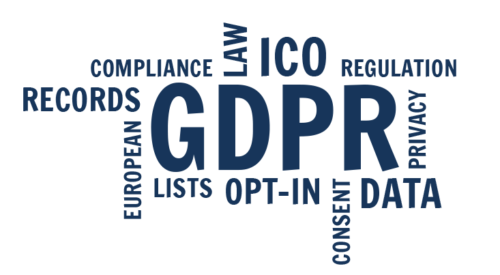Learn how to send electronic communications to prospects and customers, that comply with email rules, and keep you within the law.
Email Rules: PECR – Privacy and Electronic Communications Regulation
Since October 2003, email legislation demanding opting-in has been compulsory when sending marketing emails to consumers. Website cookies has been more stringently regulated. Critically, an EU-wide ‘opt-in’ approach has been adopted for messages sent to individual personal email addresses, meaning that businesses are only permitted to send marketing emails and SMS messages to individuals/consumers who have previously consented to the use of their details in this way.
Existing customers may be targeted, provided certain conditions are met.
The directive represents a change of emphasis rather than a change in the substance of data protection obligations, but has serious consequences for any business not adhering to the new email rules. The email privacy laws and regulations mean businesses need to address their responsibilities, both to ensure that their channels to market are compliant and to ensure that previously valuable customer databases are still useable for future marketing campaigns.
As well as new email marketing rules affecting all who send emails for marketing purposes, website operators also need to tighten up on how they collect and use customer data. Web operators must provide users with “clear and comprehensive information” about devices such as cookies used to collect their data, including the purpose of any processing.

Email Rules : Email Opt-in Rules:
Email opt-in rules have been slightly softened by a provision that allows companies to target customers who have bought products or services from them in the past, subject to the following provisos:
The customer’s details must have been collected in the context of a ‘sale’. On a strict interpretation, this could rule out the use of contact details or potential customers who have merely registered an interest in a service or product.
The customer must have been told about the possible use of his or her data for future marketing at the time it was collected. This refers to the time of the initial purchase, and they must have been given the chance to object.
Email compliance regulations state that you must give the recipient an opportunity to opt-out must it must be given with each subsequent marketing message.
The customer’s details may only be used by the same entity to whom they were originally given. This has implications for transfers of customer lists between group companies and trading partners (although these restrictions already apply under the UK’s existing data protection laws).
The marketing must be for a ‘similar product’ in relation to that which the customer’s details were originally gathered.
Email Rules: Emails to businesses
Email marketing rules provide that you can email a business in the UK provided they have not opted out of receiving messages previously. You must not email sole traders or partnerships unless they have opted in to receive messages. When sending a message to a business it is a good idea to run any lists against do not email lists, and also you must comply with GDPR in terms of your processing or personal data.
Email Opt-in rules: Get opt-in for individual consumers. You can email without opt-in to business contacts.

Email Rules in Europe
Strong interest and the exponential growth of inboxes in Europe support the potential of email marketing. However, the market is split on how to shield users from a potentially invasive marketing mechanism. National legislators in Europe are doing their best to confuse marketers and users. Several EU countries approved specific email privacy laws and regulations to protect their citizens’ privacy online. Meanwhile the European Parliament tried to regulate part of the field at the EU level. The result is a confusing legal position across Europe.
The majority favour opt-out. Ten EU member states, including France and the UK, and the European Parliament remain happy with a simple approach to email marketing to businesses. This allows for users to opt-out if they do not want to receive marketing emails. This approach is similar to the one adopted in the US.
Five countries favour an opt-in approach. A handful of EU countries, Sweden, Denmark, Austria, Germany, and Italy, have adopted specific national legislation demanding the consent of users before email marketing. Privacy concerns together with steady lobbying from ISPs motivated this approach.
Faced with an uneven legislative landscape, marketers are not presenting a common front when it comes to email best practices. Some of them favour the more managed, opt-in approach, while other, more aggressive marketers consider opt-out enough of a protection for online consumers.
Email Rules: GDPR – General Data Protection Regulation
The information above concerns permission. The question posed is has the recipient of the email message given explicit permission for their email data to be used, and whether indeed this is required. The GDPR is a piece of European wide legislation that is often confused in its understanding. Whilst it does address permission it is primarily concerned with the processing of personal data. The legal basis for processing personal data is also confirmed. Direct Marketers can use either Legitimate Interest or Consent under Recital 47 of the GDPR. This is very important as GDPR email compliance is paramount. GDPR explicitly permits email marketing when you process the data correctly. PECR outlines the permissions.
GDPR email marketing is permitted. GDPR sits alongside PECR, and does not supersede it. You can operate within PECR and GDPR at the same time. Please contact us if you need any further assistance with understanding the distinction between the two regulations.

Email Legislation: The Netherlands
This page provides a quick overview of the legal position in The Netherlands regarding email broadcasting. If you are broadcasting email in the Netherlands then this is a must read article.

Email Legislation in the USA : CAN SPAM
The legislation in the USA is far more relaxed that that in Europe or Canada. In the US however you still must adhere to certain standards in order for an commercial electronic message to be legal. Firstly, it must be made clear who the message is coming from. Secondly, the subject line should not be in any way misleading. Recipients must be given a clear and unambiguous opportunity to remove themselves from the list. Emailers must adhere to this request. Also, it must be made plain that the message is a promotional message. For more information on CAN SPAM please visit our US website CAN SPAM explanation.
Canadian Anti-Spam Law – CASL
In response to being labelled as a safe haven for spammers, the Canadian government have introduced new legislation for electronic communications, whether it is email, SMS or social media. The information here is specifically for email marketing. The legislation is quite clear. In order to send email messages to recipients in Canada, whether they are sent from within Canada or from the outside, consent must be given. There are some exceptions to this. If someone conspicuously publishes their email address then it is permitted to send a Commercial Electronic Message (CEM). This is how a lot of B2B Canadian email marketing is conducted.
Find out more about – Canadian Anti-Spam Law – CASL
Please send your mailing brief to us via our contact us. form.
Email Best Practices: Frequency, Size, Permission, Security


